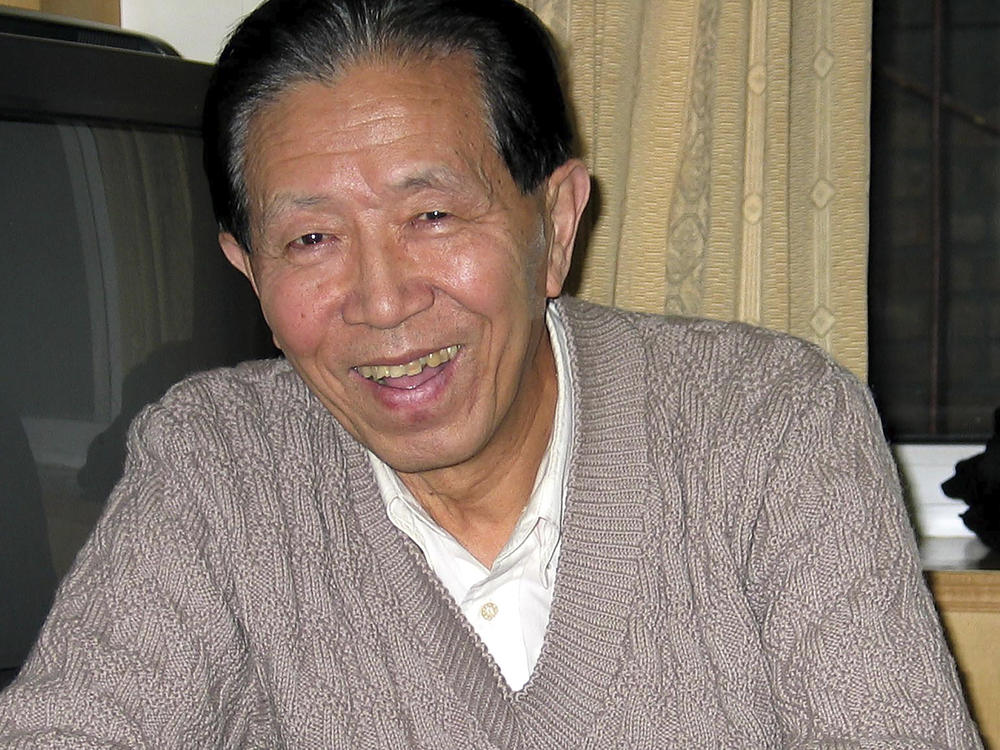Section Branding
Header Content
Jiang Yanyong, the doctor who exposed the size of the 2003 SARS outbreak, dies at 91
Primary Content
BEIJING — Jiang Yanyong, a Chinese military doctor who revealed the full extent of the 2003 SARS outbreak and was later placed under house arrest for his political outspokenness, has died, a long-time acquaintance and a Hong Kong newspaper said Tuesday.
Jiang was 91 and died of pneumonia Saturday in Beijing, according to human rights activist Hu Jia and the South China Morning Post.
News of Jiang's death and even his name were censored within China, underscoring how he remained a politically sensitive figure even late in life.
Jiang had been chief surgeon at the People's Liberation Army's main 301 hospital in Beijing when the army fought its way through the city to end weeks of student-led pro-democracy protests centered on Tiananmen Square, causing the deaths of hundreds — possibly thousands — of civilians.
In April 2003, as the ruling Communist Party was suppressing news about the outbreak of the highly contagious Severe Acute Respiratory Syndrome, Jiang wrote an 800-word letter stating there were many more SARS cases than were being officially reported by the country's health minister.
Jiang emailed the letter to state broadcaster CCTV and Hong Kong's Beijing-friendly Phoenix Channel, both of which ignored it. The letter was then leaked to Western media outlets that published it in its entirety, along with reports on the true extent of the outbreak and official Chinese efforts to hide it.
The letter, along with the death of a Finnish United Nations employee and statements by renowned physician Zhong Nanshan, forced the lifting of government suppression, leading to the resignations of both the health minister and Beijing's mayor. Strict containment measures were imposed virtually overnight, helping to restrain the spread of the virus that had already begun appearing overseas.
In all, more than 8,000 people from 29 countries and territories were infected with SARS, resulting in at least 774 deaths.
"Jiang had the conscience of a doctor to people the patients first. He saved so many lives with that letter, without thought for the consequences," Hu told The Associated Press.
Chinese authorities later sought to block media access to Jiang, who retired with the rank of major general. He turned down an interview with The Associated Press, saying he had been unable to obtain the necessary permission from the Ministry of Defense.
From 2004, Jiang and his wife were periodically placed under house arrest for appealing to Communist leaders for a re-evaluation of the 1989 protests that remains a taboo topic. That recalled Jiang's earlier experiences when he was persecuted as a rightist under Mao Zedong during the 1950s, '60s and '70s.
In 2004, Jiang was awarded the Ramon Magsaysay Award for Public Service from the Philippines, considered by some an Asian version of the Nobel Peace Prize. In the citation, he was praised for having broken "China's habit of silence and forced the truth of SARS into the open."
Jiang was prevented from leaving the country and the award was collected by his daughter on his behalf.
Three years later, he won the Heinz R. Pagels Human Rights of Scientists Award given by the New York Academy of Sciences, but was again blocked from traveling.
Echoes of Jiang's experience were heard in China's approach to the initial outbreak of COVID-19, first detected in the central Chinese city of Wuhan in late 2019.
A Wuhan eye doctor, Li Wenliang, was detained and threatened by police for allegedly spreading rumors on social media following an attempt to alert others about a "SARS-like" virus. Li's death on Feb. 7, 2020, sparked widespread outrage against the Chinese censorship system. Users posted criticism for hours before censors moved to delete posts.
Sympathy and the outpouring of anger of the treatment of Li and other whistleblowers prompted the government to change course and declare him and 13 others martyrs.
COVID-19 has killed almost 7 million people worldwide, including an estimated 1.5 million in China, whose government has been accused of massively undercounting the true number of deaths.
Jiang is survived by his wife, Hua Zhongwei, a son and a daughter, according to the South China Morning Post.
Copyright 2023 NPR. To see more, visit https://www.npr.org.

